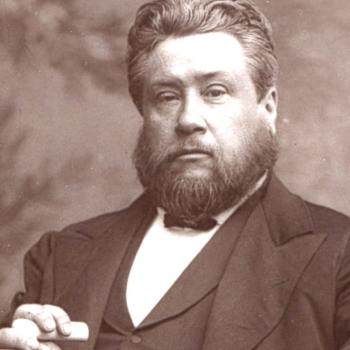I have spent almost thirty years of my life in reformed charismatic churches, and these reflections try to summarize that experience. This particular series is not a full attempt to justify the continuation of the gifts theologically – I have done that
elsewhere and in my debate with Dan Phillips. Nor is this post intended to pursuade you – I want you to be pursuaded by the Bible, not mere experience!Instead, here I want to simply answer the question, “What do the gifts look like in practice in places that claim they exist today?” I did, however, begin the series by looking at the context of 1 Corinthians 12 in five posts (1, 2, 3, 4, 5) .
“To each is given the manifestation of the Spirit for the common good. To one is given through the Spirit the utterance of wisdom, and to another the utterance of knowledge according to the same Spirit, to another faith by the same Spirit, to another gifts of healing by the one Spirit, to another the working of miracles, to another prophecy, to another the ability to distinguish between spirits, to another various kinds of tongues, to another the interpretation of tongues. All these are empowered by one and the same Spirit, who apportions to each one individually as he wills.” 1 Corinthians 12:7-11
Prophecy is the next item in the list for us to consider today. To begin with, I do have to make the point that in common with every sane-thinking charismatic I know, we are talking here about fallible prophecy not scripture-making prophecy.
What I am in fact talking about is fallible impressions that God places on our minds. This can be the cause of much confusion – many cessationists insist that all prophecy is infallible – we feel differently! I have already written a post entitled “healing the rift” where I quote an article which argues that moderate cessationists and moderate charismatics are not so far apart in their understanding of the modern phenomena – even if they call it different things!
I do stand by our use of the word prophecy, however, simply because there is good evidence that NT prophecy was itself fallible. (See for example Wayne Grudem’s work on prophecy)
Therefore, my working definition of prophecy is: “An impression that God may have a specific message for us today.” This impression can take many forms. The message may be associated with a word of knowledge or with a vision. Now this should not be taken as in any way minimizing the importance of the Bible – our prophecies are always to be weighed by the Bible and do not contribute ANYTHING in terms of doctrine or ethical instruction for us today. In fact, very often in my experience a “prophetic word” has taken the form of an illustration that brings a biblical truth to life.
An example of this might be: “I see a picture of a baby being held by his mother. I feel God wants to encourage some people here who have been feeling distant from Him because of a situation in your family. God loves you more than a mother holding her baby, and He wants you to learn to trust Him like that baby, even though your family situation is causing you so much pain – where perhaps you did not have a loving mother that you can remember. Remember Jesus loved you enough to die for you!”
Such a prophecy merely illustrates and applies a biblical truth. The Bible says God is love, and it even speaks of God’s love being like that of a mother. This made-up “word” merely applies that truth to a specific situation – that of a person with a bad image of their mother. This type of application could easily be called preaching if it occurred without a specific application to a named individual (or perhaps even with such specific application if your name is Spurgeon!) A sermon should apply biblical truth to the congregation.
It is not surprising that apparently the Puritans referred to preaching as prophesying. All preaching should have a prophetic side to it – this it what differentiates it from an academic lecture. We are taking the unchanging Word of God and applying it to a specific situation in the lives of our congregation. When preaching is done in what used to be called the “unction” of the Holy Spirit, then that anointing makes it seem that the message is directly aimed at specific hearers in the congregation. Some sermons are very much like this and leave large numbers of the congregation almost in shock as they absorb what God has been saying to them personally through a vibrant vivid application of the unchanging principles of the Bible. It is not uncommon for several individuals in the same congregation to be convinced that the preacher was talking exclusively to them!
Thus, as per biblical definitions, the prophecy that I have seen in churches I have attended is primarily there to encourage, strengthen, and edify its hearers. Prophetic words can be a general message for the whole congregation, specific t
o a group within the congregation, or at times specific to an individual. Sometimes prophecy can have a directional or predictive element to it.
As an example of that in Jubilee Church, we had a number of prophecies about the local cinema before we changed our meeting venue to be there – several given independently by people who had no idea the elders were already thinking about that option. One that struck me was given to a group of people (who were not even members of our church) a few years before all this happened. They got to a certain crossroads in Enfield during a prayer walk, and had a strong sense it was to be strategic and that they should pray for a church to be planted there. The very place they were praying was where we would years later move our church, not knowing of this prophecy.
Sometimes these prophetic words seem to have a very specific component to them. For example, before I became a preacher, people would say to me that they felt I was called to preach one day. In fact, one such word was given only a matter of days before someone, out of the blue, asked me to preach a sermon – and I haven’t stopped since.
Prophecy can also shape a whole movement of churches. The family of churches I attend, newfrontiers, shares on its website a collection of words that have shaped our movement. (You will need to scroll down the frame to read all of them.)
The leaders of newfrontiers describe being very conscious of being on a mission given to us all by God, and how He adjusted our direction along the way. We are not taught by prophecy, however, and these words are always tested by the Scriptures. There have been occasions where sermons have also had a clear prophetic component for us as a group of churches. One that is very prominent is a sermon that Simon Petit gave on “Remember the Poor” that inspired us to begin to think about how as churches we could reach out to the poor.
In my experience (and it is only my experience!) there is simply no substitute for prophecy in order for us to feel that we are in a living relationship with a God who wants to direct our lives specifically today – not only in the moral and ethical spheres – but also in terms of which of several good choices He wants us to make.
I remember one prophecy I experienced personally when I was considering a move. I was stubbornly insisting on staying where I was, although my wife and others had suggested it was time to move on. I lay in bed and dreamt I was in a car being driven towards an obstacle. It accelerated instead of breaking or swerving, and it looked like I was going to die. I woke in a sweat, sat up in bed, and heard the closest thing to an audible voice I have so far experienced say, “Adrian, sometimes it’s the right time to stop or change direction!”
There was no moral imperative that made it obvious to me whether I should stay or move, but that prophecy made it much easier for me to make my decision – which was supported by godly leaders and other circumstantial evidence as time went on. I would not make any major decision solely on the basis of such a prophetic word, but it is surely one of the things that helps me to decide between equally godly alternatives when the Bible simply doesn’t help me differentiate.
Over the years there have been many times when I have seen people shocked as they were described clearly in a prophetic word in a way the prophetic individual could not possibly have known. I have subsequently seen pastoral situations unlocked and lives transformed as a result.
I have seen prophecies that have missed the mark as well, however, and am more than ever convinced that prophecy needs to be tested and weighed by godly leaders in the context of a local church. In the wrong hands, a “prophecy” can do a lot of damage.
One guide I have heard is that generally we should avoid prophecies connected to “hatch, match, or dispatch.” Here hatch stands for predicting babies, match for predicting marriages, and dispatch means either predicting death or that a potentially fatal disease will instead be healed. I am personally aware of exceptions to these principles that have proven to be accurate and helpful, however. We should also, of course, be very careful about directive words – which must be very carefully weighed and should not be used to put pressure on people. As a general rule, it is a good idea to give personal prophecies to someone with a witness present who can “weigh” the word and either confirm it or help to relieve any “pressure” the person may be feeling. Phrases like “I might be wrong,” “Please check this with your pastor,” and “Does that mean anything to you?” are very helpful in this context.
We have to insure that we create a caring, “safe” environment where prophecies are neither despised nor taken at face value, and where loving pastors can help us work through the implications of the words given by prophetic types. But then again, isn’t that exactly what Paul meant when he said:
“Do not quench the Spirit. Do not despise prophecies, but test everything; hold fast what is good.” 1 Thessalonians 5:19-21












